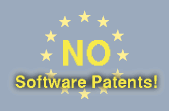Lector de Feeds
MGASA-2025-0251 - Updated poppler packages fix security vulnerability
Publication date: 29 Oct 2025
Type: security
Affected Mageia releases : 9
CVE: CVE-2025-52885 Description Use After Free (UAF) in Poppler. (CVE-2025-52885) References
Type: security
Affected Mageia releases : 9
CVE: CVE-2025-52885 Description Use After Free (UAF) in Poppler. (CVE-2025-52885) References
- https://bugs.mageia.org/show_bug.cgi?id=34668
- https://www.openwall.com/lists/oss-security/2025/10/13/2
- https://cve.mitre.org/cgi-bin/cvename.cgi?name=CVE-2025-52885
- poppler-23.02.0-1.8.mga9
Categorías: Actualizaciones de Seguridad
MGASA-2025-0250 - Updated tomcat packages fix security vulnerabilities
Publication date: 29 Oct 2025
Type: security
Affected Mageia releases : 9
CVE: CVE-2025-55752 , CVE-2025-55754 , CVE-2025-61795 Description Directory traversal via rewrite with possible RCE if PUT is enabled. (CVE-2025-55752) Console manipulation via escape sequences in log messages. (CVE-2025-55754) Delayed cleaning of multi-part upload temporary files may lead to DoS. (CVE-2025-61795) References
Type: security
Affected Mageia releases : 9
CVE: CVE-2025-55752 , CVE-2025-55754 , CVE-2025-61795 Description Directory traversal via rewrite with possible RCE if PUT is enabled. (CVE-2025-55752) Console manipulation via escape sequences in log messages. (CVE-2025-55754) Delayed cleaning of multi-part upload temporary files may lead to DoS. (CVE-2025-61795) References
- https://bugs.mageia.org/show_bug.cgi?id=34699
- https://www.openwall.com/lists/oss-security/2025/10/27/4
- https://www.openwall.com/lists/oss-security/2025/10/27/5
- https://www.openwall.com/lists/oss-security/2025/10/27/6
- https://cve.mitre.org/cgi-bin/cvename.cgi?name=CVE-2025-55752
- https://cve.mitre.org/cgi-bin/cvename.cgi?name=CVE-2025-55754
- https://cve.mitre.org/cgi-bin/cvename.cgi?name=CVE-2025-61795
- tomcat-9.0.111-1.mga9
Categorías: Actualizaciones de Seguridad
mesa-24.2.3-1.mga9.tainted.src.rpm
In Mageia/9/x86_64:
Mesa is an OpenGL 4.6 compatible 3D graphics library.
Categorías: RPMs
mesa-24.2.3-1.mga9.tainted.src.rpm
In Mageia/9/aarch64:
Mesa is an OpenGL 4.6 compatible 3D graphics library.
Categorías: RPMs
mesa-24.2.3-1.mga9.tainted.src.rpm
In Mageia/9/armv7hl:
Mesa is an OpenGL 4.6 compatible 3D graphics library.
Categorías: RPMs
mesa-24.2.3-1.mga9.tainted.src.rpm
In Mageia/9/i586:
Mesa is an OpenGL 4.6 compatible 3D graphics library.
Categorías: RPMs
rachota-2.4-0.602hg.1.mga10.src.rpm
In Mageia/cauldron/x86_64:
Rachota is a portable application for timetracking different projects. It runs
everywhere. It displays time data in diagram form, creates customized reports
and invoices or analyses measured data and suggests hints to improve user's
time usage. The totally portable yet personal timetracker.
Categorías: RPMs
rachota-2.4-0.602hg.1.mga10.src.rpm
In Mageia/cauldron/i586:
Rachota is a portable application for timetracking different projects. It runs
everywhere. It displays time data in diagram form, creates customized reports
and invoices or analyses measured data and suggests hints to improve user's
time usage. The totally portable yet personal timetracker.
Categorías: RPMs
ppmtomd-1.6-9.mga10.src.rpm
In Mageia/cauldron/i586:
A program to convert images from PPM format into the control language for the
Alps Micro-Dry printers, at various times sold by Citizen, Alps and Okidata.
This program drives the Alps Micro-Dry series of printers, including the
Citizen Printiva series, Alps MD series, and Oki DP series (but not yet the
DP-7000).
In the current release, the program drives the standard mode fairly well; the
dye sublimation mode very well; and the VPhoto mode reasonably well.
It supports all the colours available up to the DP-5000, including the foil
colours.
Categorías: RPMs




